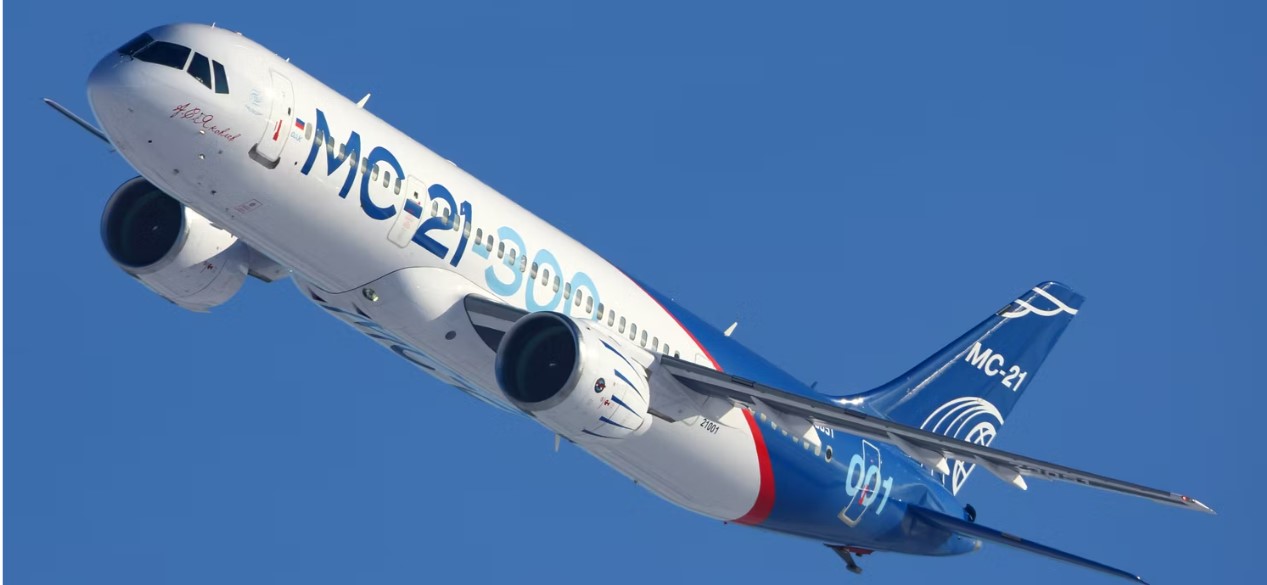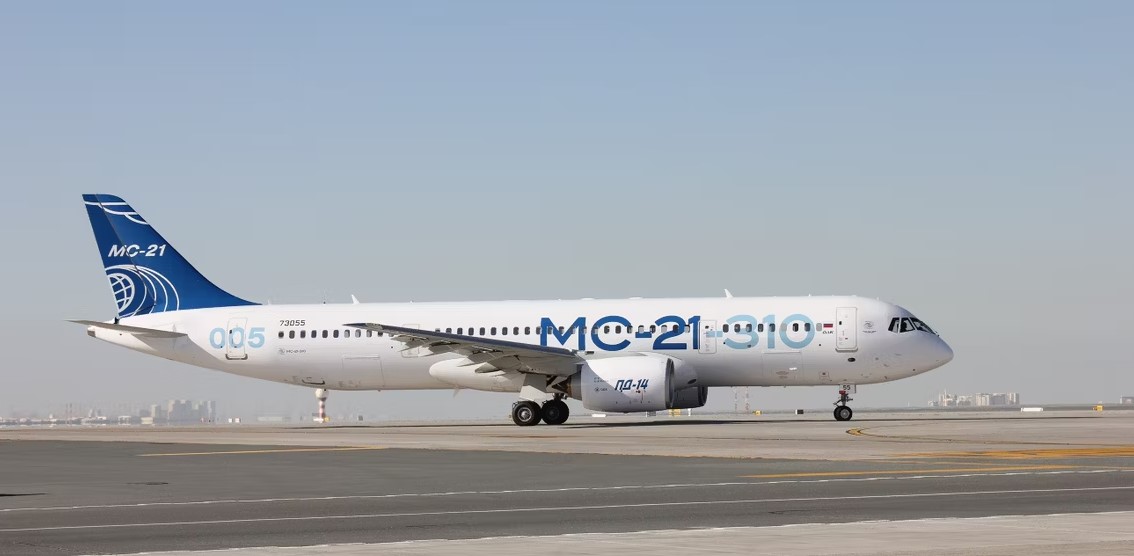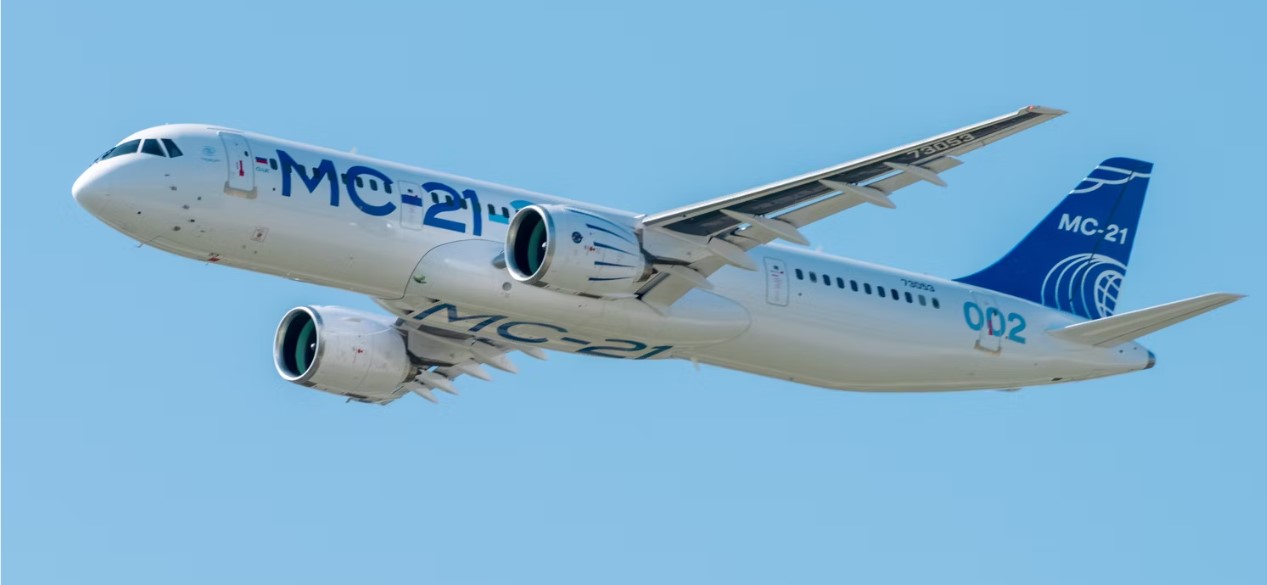Rostec, the majority shareholder of United Aircraft Corporation (UAC), has provided an update on the progress of the MC-21, designed by UAC subsidiary Yakovlev. This Russian narrowbody aircraft, positioned as a competitor to the Airbus A320neo and Boeing 737 MAX, is experiencing further delays, pushing first deliveries to 2025 or potentially 2026.
Sergei Chemezov, CEO of Rostec, revealed that UAC will not deliver any MC-21 aircraft in 2024. During a press conference following Vladimir Putin’s state-of-the-nation address, Chemezov emphasized the need for comprehensive testing before aircraft delivery.

He expressed safety concerns, underscoring the importance of ensuring the aircraft’s reliability for passengers and operators. Chemezov did not specify the nature of the remaining tests but reiterated the expectation for initial deliveries by 2025, although there is a possibility of further delays extending into 2026.
Aeroflot, the launch customer for the MC-21, is poised to receive the first deliveries once testing is completed. Currently, five airlines have ordered a total of 291 MC-21 aircraft, with 99 aircraft yet to be assigned operators.
Before Russia’s military actions in Ukraine, the MC-21 program relied on foreign components, including engines and wings. However, increasing sanctions from the United States, European Union, and other Western nations have disrupted the supply chain, particularly affecting the aerospace industry.
Initially certified by the Federal Air Transport Agency of Russia in January 2022, the MC-21 boasted innovative features such as a composite wing, with substantial components made from composite materials. Despite these advancements, reliance on Western components, including Pratt & Whitney engines, became untenable post-sanctions.
Following the sanctions, Yakovlev shifted focus to developing domestic alternatives. By July 2021, the company successfully installed the first Russian-made wing on an MC-21, marking a significant milestone in the program.

Furthermore, plans were outlined to equip Russian airlines with domestically produced aircraft, aiming to reduce dependency on Western manufacturers. While facing challenges posed by sanctions, Yakovlev remains committed to advancing the MC-21 program.
The shift towards domestic components aligns with broader objectives to bolster Russia’s aerospace industry and ensure self-sufficiency in aircraft production. With ongoing efforts to navigate geopolitical constraints, the MC-21 aims to emerge as a viable competitor in the global narrowbody market.

